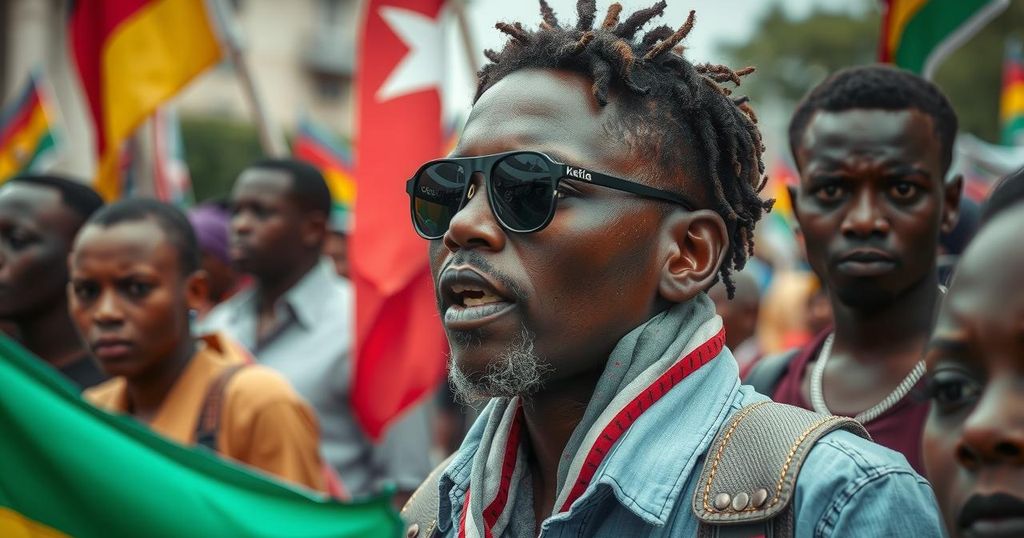Cars
AFRICA, AMNESTY INTERNATIONAL, CHANGE TANZANIA, EUROPE/ASIA, FINANCE BILL, HUMAN RIGHTS, JUSTIN MUTURI, KAMPALA, KENYA, KIDNAPPING, KILIMANI, LAW SOCIETY OF KENYA, MARIA SARUNGI TSEHAI, NAIROBI, PROTESTS, PUBLIC SERVICE MINISTRY, RUTO, SAMIA SULUHU HASSAN, TANZANIA, TOYOTA, TSEHAI, TURKEY, UGANDA, VIOLENCE
Amira Khan
0 Comments
Recent Abduction of Tanzanian Rights Activist Raises Human Rights Concerns in Kenya
Maria Sarungi Tsehai, a Tanzanian rights activist, was kidnapped in Nairobi but released following the intervention of human rights groups. The incident illustrates the troubling trend of transnational repression affecting critics of the government, amidst rising abductions in Kenya, raising significant human rights concerns.
A prominent rights activist from Tanzania, Maria Sarungi Tsehai, was recently abducted in Nairobi, Kenya, only to be released shortly after due to the swift action of human rights organizations. Known for her significant advocacy in both political reform and women’s rights, Tsehai has amassed a large following of 1.3 million on X but has been living in exile to escape increased government repression in Tanzania. Amnesty International raised alerts upon news of her kidnapping by three armed men, suspected to be Tanzanian security agents acting outside their jurisdiction. Fortunately, hours later, the Law Society of Kenya announced her safe return, while also highlighting the troubling implications this incident raises regarding human rights in Kenya.
Tsehai exemplifies a growing concern regarding transnational repression, particularly in regions where foreign governments seemingly violate international laws to silence dissent. The occurrence of abductions in Kenya has been troublingly on the rise, impacting both foreign nationals and local citizens alike. Notable incidents include the forced return of Turkish refugees and the abduction of Ugandan opposition leader Kizza Besigye. This alarming trend is part of a pattern of increased violence toward human rights defenders, fostering an environment of fear amid escalating governmental crackdowns, notably under the presidency of Samia Suluhu Hassan.
Amnesty International has observed that since June’s protests in Kenya, at least 82 individuals have gone missing, prompting calls for investigations into these abductions. Criticism from international allies, including the United States and the United Kingdom, has highlighted urgent demands for accountability in addressing these human rights violations. The Kenyan government faces growing scrutiny over both its own citizens’ safety and its complicity in allowing foreign governments to operate with impunity on its territory.
The abduction of Maria Sarungi Tsehai unfolded against a backdrop of rising human rights violations in both Kenya and Tanzania. In Tanzania, President Samia Suluhu Hassan’s administration has been criticized for repressive tactics against opposition figures, coinciding with an approaching election period, while Kenya grapples with a disturbing trend of abductions of its own citizens, particularly those dissenting against the government. Reports indicate a systematic pattern of transnational repression where foreign governments leverage other nations’ territories to suppress political activists, raising significant questions about Kenya’s compliance with international human rights standards.
In summary, the abduction and subsequent release of Maria Sarungi Tsehai underscore a grave concern regarding human rights practices in East Africa. It illustrates a complex interplay of local and regional political repression, amplified by international complicity. Both Kenya and Tanzania have come under international scrutiny for their handling of dissent and the safety of activists, drawing attention to the urgent need for comprehensive reform and protection of human rights in the region.
Original Source: www.youralaskalink.com




Post Comment